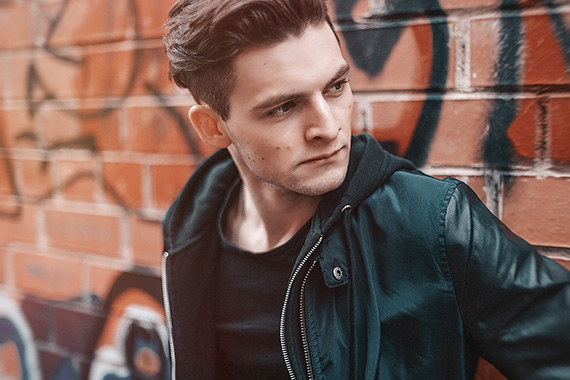Have you ever wondered how pro photographers get those great portraits that grab your attention so much that you often forget you’re looking at a picture? Through my experience as a professional photographer, I can pass on a few simple tips to make sure you get great portraits every time you click the shutter.
1. Learn to relax your model.
Have a cup of tea and a chat, show them your work, and talk about what you hope to achieve from the shoot. It is vital that you build a rapport with your model. He or she must feel at ease in front of your camera. Trust is vital to a good, honest portrait.
2. See the light.
One of the best lighting sources available is the humble window. Most houses have plenty, and they are a lot cheaper than fancy studio lighting systems. So turn your flash off and position your subject in the middle of the room facing the window. Now that the lovely soft natural light is falling upon the model’s face, position yourself next to the window facing the subject. Be careful not to block the light or to cast any unwanted shadows across the subject.

Photo by Tommaso Fornoni
3. Keep your aperture wide open.
For a nice blurry background and an eye-catching, popped subject, set your aperture (f-stop) to 2.8 or 4.5. You may need to set your ISO first depending on how light your room is. ISO sets the camera’s sensitivity to light, a bit like the old film speeds of yesteryear. An ISO value of 400 works in average conditions. Crank it up to 800 for darker rooms or gloomy days. This will keep your shutter speed up so you can avoid camera shake and properly expose your image.
4. Focus on the eyes.
Your wide aperture will give you a very narrow depth of field, so it is vital that the eyes are in focus. Eyes are the windows to the soul, and that’s what we want to see in a great portrait. Nothing looks worse than a nose in sharp focus with blurry eyes peering out from the background. Use a single focus point and keep it firmly fixed on the model’s pupils.
5. Compose within the frame.
Keep the model slightly off center so that the eye area is roughly a third of the way in from the edge and a third of the way down from the top of the frame. Keep backgrounds simple and free of distracting clutter.

Photo by Jonas Svidras
Combine all of the above tips, and you should be on your way to taking some great portraits. Most of the world’s greatest portraits were made using simple natural light photographic techniques without the use of costly and complicated equipment. Keep it simple, keep it fun.
About the Author:
Adam Gibbard (www.adamgibbard.co.uk) is a professional wedding photographer in Cornwall, England. He has developed his style and expertise through practical experience and using the beautiful light available in Cornwall.
Like This Article?
Don't Miss The Next One!
Join over 100,000 photographers of all experience levels who receive our free photography tips and articles to stay current:







Leave a Reply